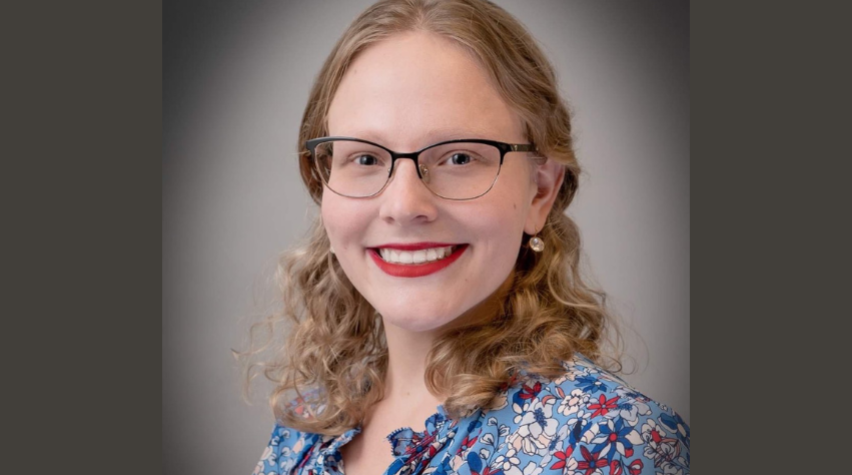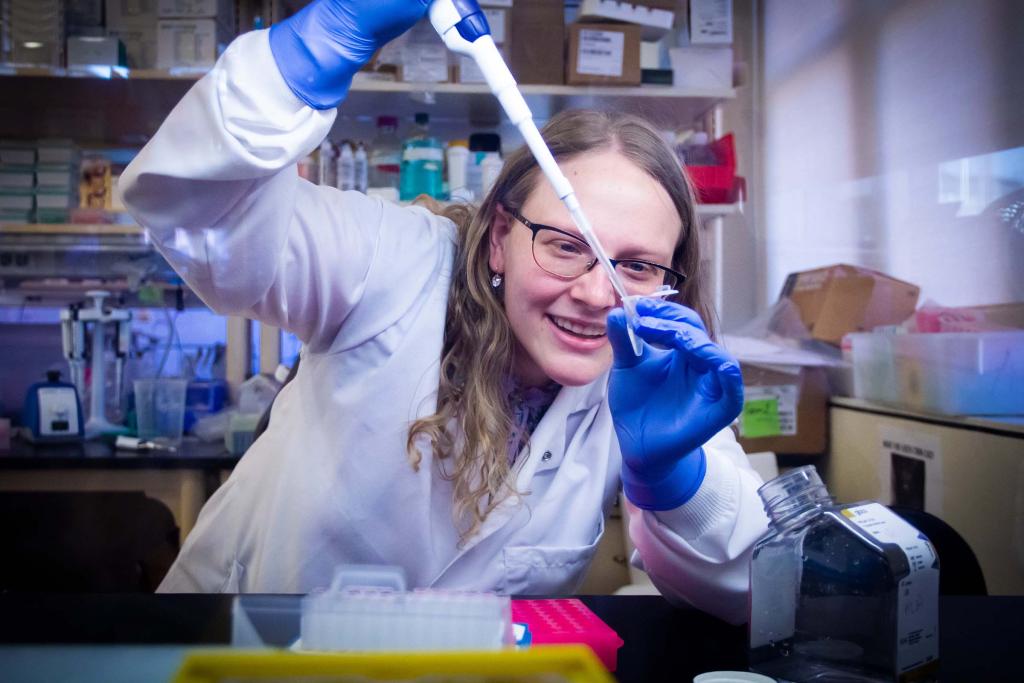
Following is an interview we recently did with Mariah L. Arral, who was recently named one of AIChE’s 2023 35 Under 35. Mariah is a sixth-year Ph.D. candidate in the Department of Chemical Engineering at Carnegie Mellon University and is an NIH NRSA F31 fellow and former NSF GRFP fellow. The focus of her thesis is on developing new materials for lipid nanoparticles and understanding the relationship between materials, delivery, and immunogenicity. Mariah is an openly disabled researcher and advocate for disabled people, and she also conducts engineering education research related to neurodiversity.
Tell us a bit about your personal experience as a professional working with a disability.
There are many sad and disturbing anecdotes that are helpful to discuss with close colleagues, family, and friends, but I try and live my life looking at the positive aspects, while recognizing that the negatives do exist.
I have never shied away from being openly disabled. I grew up in a supportive environment where I knew I was different (disabled), but my differences did not make me less than. If people wanted to look at me as less than because of my differences, it reflected on them, not me. I have always been exactly who I am and have carried that from my childhood into my professional career.
I think the most important thing we can do as an ally is to self-educate.
I continue to try and operate with this mentality, while also understanding that education around accessibility practices needs improvement. Not every negative action is purposeful, and many can come from a place of ignorance.
My openness has led to many highlights in my career, and to me, they have outweighed the negative. Professors, students, and staff have told me they wish they could be open like I was, but they are worried, while at the same time proud of me for what I am doing. I have assisted other disabled people with their applications to graduate school and helped them decide whether to disclose their disability status, as disclosure should always be a personal choice. Because of my openness and advocacy, I have been asked to give lectures, speak with groups of students, and engage with many others. I have had students tell me I gave them faith that they could make it, too, which is the most heart-warming comment I have ever received.
What are the most important issues facing engineers (or other professionals) with disabilities in today’s employment environment?
Ableism is one of the most pressing issues facing disabled people, both in society and the employment environment. There is overt ableism (e.g., “You only got that award because you claimed a disability and therefore are from an underrepresented group.”) and more subtle ableism such as micro-aggressions (e.g., “That person is so socially awkward, they must be autistic”). Additionally, internalized ableism among the disabled community is an ongoing barrier that perpetuates harm and can falsely give credence to ableist views.

How can people (peers who are allies, management, organization leaders, etc.) foster a more inclusive environment for professionals with disabilities?
I think the most important thing we can do as an ally is to self-educate. Additionally, recognize that you will make mistakes, and when you do, apologize, learn, and move forward. I myself make mistakes, but I try not to make them twice. Businesses and organizations can help by providing training workshops, educational seminars, or readings of first-person accounts from published articles.
If you have Netflix, I recommend watching Crip Camp, an amazing documentary highlighting the disability movement from those who led it. Know that it discusses the abuse and neglect of disabled people and can be triggering. Those I have recommended it to have found it eye-opening and profound.
What would be your desired outcome of National Disability Employment Awareness Month?
This year’s National Disability Employment Month marks the 50th year since the passing of the Rehabilitation Act of 1973. While we celebrate this year, we should also recognize we have many important fights ahead.
In particular, I hope it brings awareness to the benefits of creating workplaces and environments that are inclusive and accessible. Consider the concept known as the curb-cut effect, which takes its name from the small ramps that create a smooth transition from curb to street. Many of us enjoy being able to easily push our groceries from the store to our cars without jumping a curb, or easily rolling our luggage into a hotel lobby from the street, thanks to curb cuts. Curb cuts were initially put in place to assist in disabled people’s movement. The curb-cut effect states that, just as we all are able to benefit from curb cuts, similar investments made for one group can often benefit many others.
I’d also like to point out that obtaining documentation for accommodations in the workplace is often expensive and time-consuming for disabled people. By making workplaces universally inclusive and accessible, we can take the burden off disabled people – particularly the economically disadvantaged among them – and benefit a much larger segment of society at the same time.
What would you like AIChE’s DORIC to accomplish within the chemical engineering community — and what will be necessary to achieve that goal?
There are many ways the Disabilities OutReach & Inclusion Community (DORIC) could assist chemical engineers with disabilities, but they will require time and work. A committee is only able to do what committee members have the time and bandwidth to handle. As a member of the DORIC committee, I know we all deeply care about assisting with and promoting the success of disabled chemical engineers. Over the next several years I would like to see a session at AIChE that is sponsored by DORIC with an award for disabled people or allies.


